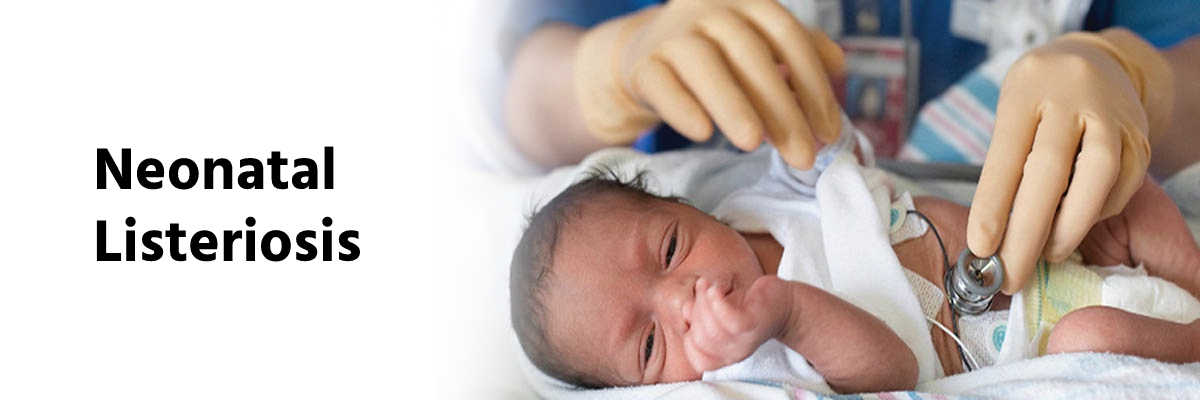
 IJCP Editorial Team
IJCP Editorial Team
Neonatal listeriosis
A case reported admission of a baby boy of 23 days old, for treatment and management of presumed neonatal sepsis and meningitis. He was a full-term baby born normally with spontaneous vaginal delivery. His mother was reported to be primigravida without any medical complications during her pregnancy and contained negative lab results for group B streptococci (GBS) at 36 weeks of gestation, HIV, syphilis, gonorrhea, chlamydia, and hepatitis B and C. Additionally she didn't have any history of herpes simplex virus (HSV) infection and did not retain any genital lesions on examination. No history of any fever or influenza-like symptoms was reported during her pregnancy.
She reported vigorous emergence of the baby and was discharged after 2 days from the hospital. The baby was exclusively breastfed and regained his birth weight by the 14th day of life (DOL). A day before admission, the child developed a tactile fever, reduced feeding, and fussiness. He was taken to a pediatrician, who gave him acetaminophen. On the following night, the patient became more finicky and experienced tactile fevers. He was taken to an emergency department, where he was discovered to be irritable, tachycardic, and febrile to 39.2°C, without any other abnormal findings.
Blood and cerebrospinal fluid were collected and sent for investigation, where CSF was found to be significant for a pleocytosis, and showed abnormally elevated protein (143 mg/dl) and low glucose (16 mg/dl), highly suggestive of bacterial meningitis. The patient was empirically given intravenous ampicillin (300 mg/kg/day), gentamicin (7.5 mg/kg/day), and acyclovir (60 mg/kg/day). He became afebrile but fussy.
The Gram stain was found to be negative for a causative organism, thus gentamicin was switched to cefotaxime (300 mg/kg/day) to render complete empirical Gram-negative coverage, along with receiving ampicillin as empirical treatment of GBS and Listeria, and acyclovir for HSV.
Magnetic resonance imaging with a contrast of his brain on DOL 24 showed a mild enhancement of the leptomeninges without any other findings. Blood cultures, CSF cultures and HSV CSF PCR assay remained negative.
Repeat blood cultures and CSF were performed on DOL 25, where blood culture showed no growth after 5 days and Gram staining of the CSF showed many white blood cells and no organisms. Repeated cultures also remained negative so he was continued on empirical therapy for presumed bacterial meningitis. On testing of CSF with the FilmArray Meningitis/Encephalitis (ME) Panel (BioFire Diagnostics, Salt Lake City, UT, USA), Listeria monocytogenes were detected. Thus, acyclovir was discontinued and the patient was treated with a 21-day course of ampicillin and gentamicin. He showed complete recovery because of his excellent clinical status.
Anand V, Holmen J, Neely M. et al. Neonatal Meningitis Caused by Listeria monocytogenes Diagnosed by Multiplex Molecular Panel. Journal of Clinical Microbiology. December 2016;54(12). https://journals.asm.org/doi/pdf/10.1128/JCM.01159-16

IJCP Editorial Team
Comprising seasoned professionals and experts from the medical field, the IJCP editorial team is dedicated to delivering timely and accurate content and thriving to provide attention-grabbing information for the readers. What sets them apart are their diverse expertise, spanning academia, research, and clinical practice, and their dedication to upholding the highest standards of quality and integrity. With a wealth of experience and a commitment to excellence, the IJCP editorial team strives to provide valuable perspectives, the latest trends, and in-depth analyses across various medical domains, all in a way that keeps you interested and engaged.





















Please login to comment on this article